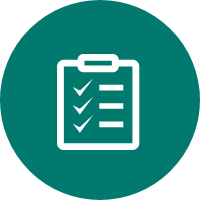
Policy initiatives > Budget highlights > Victoria 2021-22
The 2021-22 state budget was released by the Andrews Labor Government on 20 May 2021. Budget highlights relating to skills and training are provided below. Direct links to relevant budget papers are provided for quick and easy access.
The 2021-22 budget begins the process of implementing a new vision for the training sector, guided by the recommendations of the final report of the Skills for Victoria's Growing Economy review, which was released in February 2021.
 Apprenticeships and traineeships
Apprenticeships and traineeships
TAFE Equipment and Facilities Fund for apprentices and trainees
$12 million is provided in 2021-22 for TAFEs to upgrade facilities and equipment to support training for apprentices and trainees. This initiative aims to build partnerships with industry and ensure apprentices and trainees develop contemporary skills to meet changing industry practice (Budget overview, p. 33; Budget paper no. 3: Service delivery, pp. 30 and 35).
Enhancing secondary vocational pathways
The Head Start Apprenticeship and Traineeship program will continue, giving students the opportunity to undertake a traineeship or apprenticeship while completing their senior secondary certificate (Budget paper no. 3: Service delivery, pp. 21, 24 and 25).
Implementing the Jobs Plan - Apprenticeships Victoria
Apprenticeships Victoria has been established to connect the future pipeline of apprentices with Big Build projects and support 1500 opportunities each year to work on some of the state's biggest projects, including the new Footscray Hospital and North East Link - see the 2020-21 Budget highlights for more information (Budget overview, p. 26; 2020-21 Budget paper no. 3: Service delivery, pp. 28 and 38).
 Employment
Employment
Skills and Jobs Centre bus for the Mallee
$1.4 million over two years ($1.1 million in 2021-22) is allocated for a pilot Skills and Jobs Centre bus to provide career advice, help with job searching and other supports for job seekers in the Mallee region, including Charlton, Kerang and Robinvale (Budget paper no. 3: Service delivery, pp. 20 and 29).
Tackling the digital skills divide to get Victorians into jobs
$6.2 million over two years from 2021-22 is provided to increase places in pre-accredited digital literacy and employability skills training courses delivered by Learn Local providers, and to support the development and implementation of an online core skills assessment tool to better target training pathways for learners in post-compulsory training. The initiative is expected to provide 4800 additional places in digital literacy and employment skills courses (Budget paper no. 3: Service delivery, pp. 21 and 29; Budget overview, p. 33).
Improving outcomes for women in Victoria: strengthening Victoria's economic recovery through women's participation
$4.2 million over two years ($2.1 million in 2021-22 and in 2022-23) is allocated to deliver targeted economic security programs to support migrant and refugee women into employment. The funding will enable community organisations to respond to the specific needs of women at different stages of their employment pathway, providing support, advice and mentoring to build the necessary confidence and skills to pursue employment, establish a small business or access further education. This initiative is administered by the Department of Families, Fairness and Housing (Budget paper no. 3: Service delivery, pp. 47 and 57).
Engaging and supporting at-risk young people
Funding of $18.4 million over two years will be provided to continue initiatives that support young Victorians at risk of disengagement from the community, with $9.2 million allocated for each year. These community-led initiatives provide vulnerable young people from African and Pasifika backgrounds with culturally-specific early interventions and increased education and employment opportunities. This initiative is administered by the Department of Families, Fairness and Housing (Budget paper no. 3: Service delivery, pp. 47 and 57).
 Industry
Industry
Establishing the Victorian Skills Authority
The Victorian Skills Authority will be established to bring together industry, providers, and other stakeholders to identify priority training areas and develop an annual Victorian Skills Plan - see Training providers and programs below for more information (Budget paper no. 2: Strategy and outlook, p. 15; Budget paper no. 3: Service delivery, pp. 22 and 29).
Victorian jobs for Victorian workers
The Budget overview states the government has mandated a minimum local content on major projects, including a 90 per cent minimum on construction projects and the use of local apprentices, trainees, and cadets [in relation to government funded projects] (p. 29). The overview highlights initiatives for industries including aged care, arts and creative, civil infrastructure, construction, health, hospitality, retail, tourism, and transport (including the construction of new trains). Further detail on infrastructure initiatives is available in Budget paper no. 4: State capital program.
 National Agreements
National Agreements
In 2021-22, the Australian Government will provide estimated funding of $500 million to support Victoria's skills and workforce development services through the National Skills and Workforce Development Specific Purpose Payment (SPP) and National Partnership and Project payments.
National Skills and Workforce Development Specific Purpose Payment
Funding from the Commonwealth Government under the National Agreement for Skills and Workforce Development is estimated at $411 million in 2021-22 (Budget paper no. 5: Statement of finances, p. 188).
National Partnership Payments
The total estimated National Partnership Payments for 2021-22 is $89 million from the JobTrainer Fund (Budget paper no. 5: Statement of finances, p. 188).
The notes to the JobTrainer Fund entry state that the total Commonwealth contribution for this initiative is estimated to be $130.3 million and the phasing of funds may vary from Commonwealth budget publications. The Australian Government 2021-22 budget estimates Victoria may also be eligible to receive $5.7 million under the Project Agreement for Revitalising TAFE Campuses Across Australia (Budget paper no. 5: Statement of finances, p. 188; Australian Government Budget paper no. 3: Federal financial relations, pp. 42-45).
 Regulation
Regulation
Victorian Registration and Qualifications Authority
The Victorian Registration and Qualifications Authority (VRQA) is Victoria's education and training regulator. The VRQA registers education and training providers in vocational education and training (VET) that operate in Victoria only or Victoria and Western Australia only, school education, school and non-school senior secondary education and overseas secondary student exchange programs. It also registers children for home schooling in Victoria, accredits courses and registers qualifications, investigates complaints against the providers registered by the VRQA and regulates apprenticeships and traineeships in Victoria. The Strategy Review and Regulation output is allocated $117.8 million in 2021-22. This output plans, develops, and monitors strategic policy settings across all stages of learning. It also includes inter-governmental negotiations, research, data, and performance evaluations and supports regulation that ensures quality education and training is delivered (Budget paper no. 3: Service delivery, p. 150).
 Training providers and programs
Training providers and programs
Establishing the Victorian Skills Authority
$86 million funding is provided over four years to establish the Victorian Skills Authority. The Victorian Skills Authority will be an anchor organisation, bringing together industry, providers, and other stakeholders to identify priority training areas and develop an annual Victorian Skills Plan. The Victorian Skills Authority will also support continuous improvement in the quality of teaching and training (Budget paper no. 2: Strategy and outlook, p. 15; Budget paper no. 3: Service delivery, pp. 22 and 29).
TAFE reform
The Office of TAFE Coordination and Delivery will be established as a separate business unit in the Department of Education and Training by mid-2021 to lead public provider strategy and collaboration across the TAFE network. The budget initiative 'TAFE reform' is allocated funding of $15 million over two years ($11 million in 2021-22) to establish the office, and to continue the coordination of practical placements for TAFE students, including students in the allied health, individual support and community services, early childhood and education and training sectors (Budget paper no. 2: Strategy and outlook, p. 15; Budget paper no. 3: Service delivery, pp. 22 and 29).
More training places for the TAFE and training system
Additional funding of $84.3 million in 2021-22 and $1.5 million each year over the forward estimates is included for the provision of subsidised VET. The 'More training places for the TAFE and training system' initiative is expected to provide an extra 12 200 subsidised training places. Funding is also provided for the Asylum Seeker VET program, which provides eligible asylum seekers with access to subsidised training (Budget paper no. 3: Service delivery, pp. 22 and 29; Budget overview, p. 33).
Increasing the funding of high-quality and accessible training
Contributions for government-subsidised accredited courses delivered by TAFEs and other registered training providers will increase in 2022, including subsidy rates, maximum concession contribution rates and non-Free TAFE fee waiver rates. The budget measure 'Increasing the funding of high-quality and accessible training' is allocated $99 million over four years, with $14.1 million in 2021-22 (Budget paper no. 3: Service delivery, pp. 22 and 28).
Enhancing secondary vocational pathways
$8.8 million funding is allocated in 2022-23 under the budget measure 'Enhancing secondary vocational pathways' to continue to support secondary students to access high-quality VET offerings for the second half of 2022. The Head Start Apprenticeship and Traineeship program will also continue. Additional funding will be provided to schools for essential materials for students undertaking VET subjects as part of senior secondary schooling (Budget paper no. 3: Service delivery, pp. 21, 24 and 25).
Increasing access to Tech Schools
$18.5 million over four years ($2.3 million in 2021-22) of additional funding is provided for Tech Schools in the Ballarat, Banyule, Nillumbik, Bendigo, Casey, Geelong, Gippsland, Monash, Whittlesea, Wyndham, and Yarra Ranges regions, to build students' science, technology, engineering and mathematics (STEM) skills and connect them to jobs of the future. This initiative will expand on site and virtual delivery capabilities of existing Tech Schools and pilot a mobile Tech School delivery model for students in remote areas of Gippsland. Tech schools link secondary schools to industry, providing access to advanced technology, industry programs and exposure to career pathways. Students remain enrolled in local schools but attend classes at a Tech School campus hosted by universities or TAFE colleges (Budget paper no. 3: Service delivery, pp. 22 and 25).
Building Better TAFEs Fund
The final distribution from the TAFE Equipment and Facilities Fund is $72 million over four years for upgrades at Bendigo Kangan Institute's Broadmeadows Campus and GOTAFE's Archer Street Shepparton Campus. $12 million is also provided to establish the TAFE Equipment and Facilities Fund - see the Apprenticeships and traineeships section above for more information (Budget overview, p. 33; Budget paper no. 3: Service delivery, pp. 30 and 35).
 Budget highlights archive
Budget highlights archive
Prior year budget highlights can be accessed by clicking on the buttons below.
How to cite this page
NCVER (National Centre for Vocational Education Research) 2021, Budget highlights: Victoria 2021-22, VET Knowledge Bank, NCVER, Adelaide, <https://www.voced.edu.au/vet-knowledge-bank-policy-initiatives-budget-highlights-victoria-2021-22>.
Providing feedback
This page is a product in the VET Knowledge Bank, a living resource that NCVER continues to develop and update on an ongoing basis.
We value your feedback and welcome comments and suggestions.